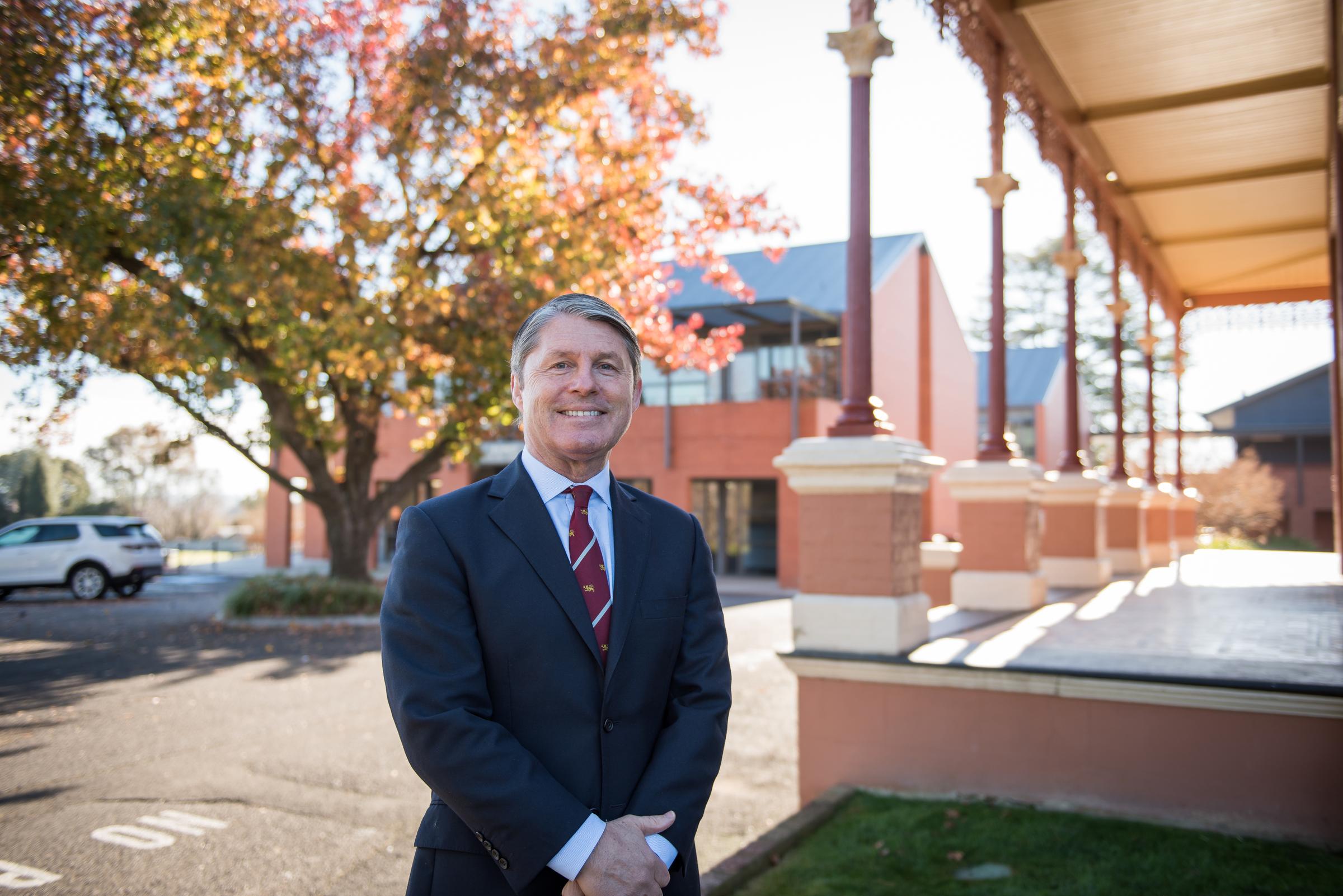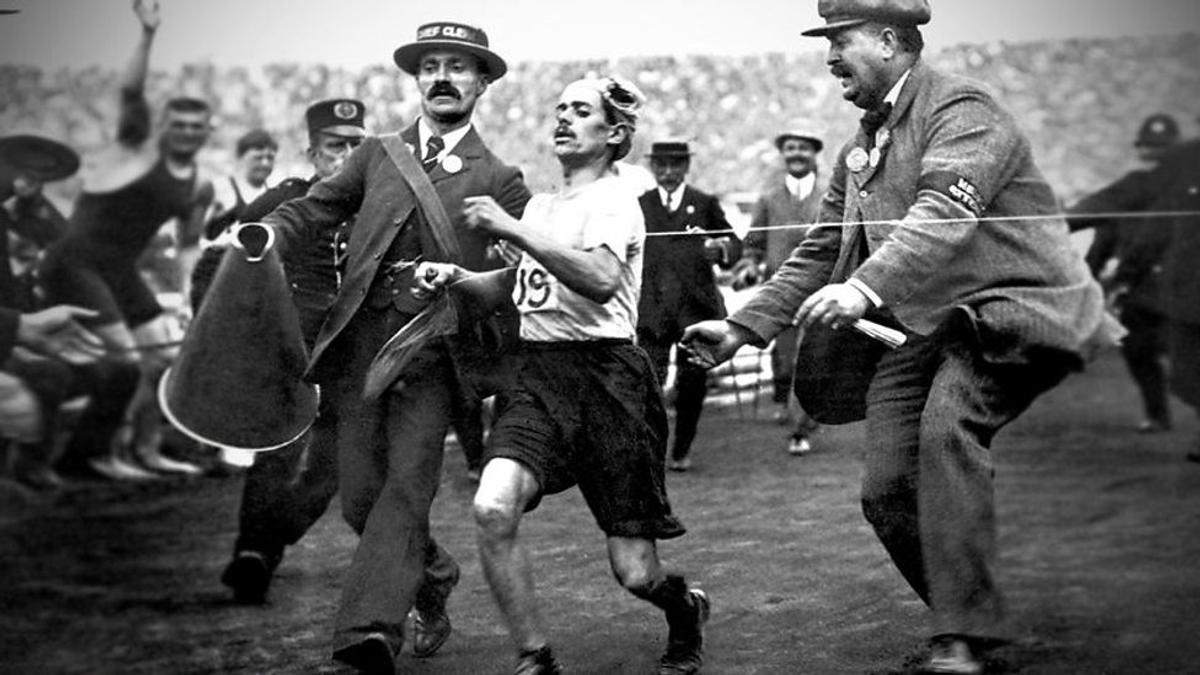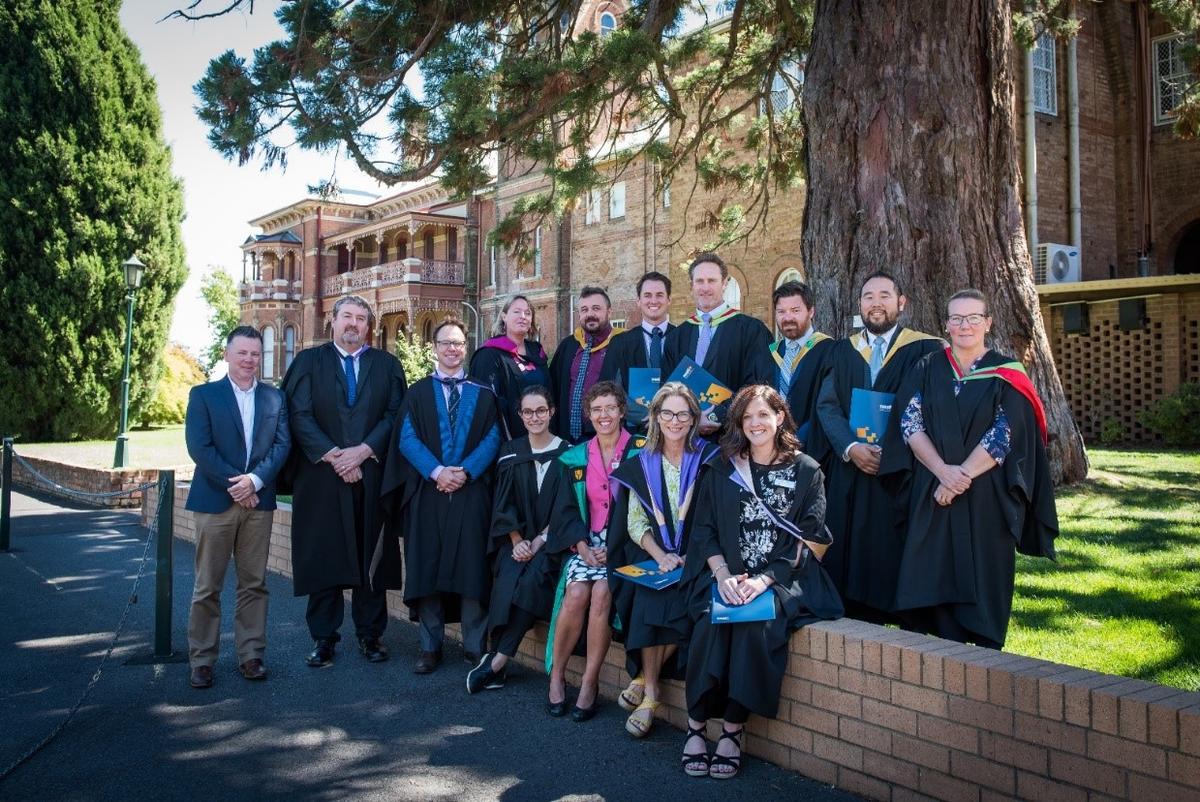Message from the Principal

7 March - 21 March 2018
The rich life of the School continually sees full expression as students, staff and families are enthusiastically engaged in a plethora of activities and pursuits.
Our recent KWS Day was a marvellous demonstration of community as was the very successful Ice Breaker Cocktail evening that was hosted by the Parents’ and Friends’ Association. My sincere thanks to them for their support of our many community events.
Last week our students and staff energetically threw their support behind two important charitable events - the World’s Greatest Shave in support of the Leukaemia Foundation, and a staff v students cricket match in aid of the McGrath Foundation’s Pink Stumps Day. There were some very stiff and sore members of staff on Monday morning! I am greatly impressed by the way our community support such causes and the generosity shown by so many. A very important object of a KWS education is inculcating within our students a desire to serve others and contribute to the wellbeing of our communities.
The words of Ralph Waldo Emerson are most worthy of reflection:
“The purpose of life is not to be happy. It is to be useful, to be honourable, to be compassionate, to have it make some difference that you have lived and lived well.”
Last weekend saw several staff travel to Cootamundra and Wagga to meet members of our School community and potential families. It was lovely to spend time speaking with families and I am most grateful for their support of these highly enjoyable events.
Courage
Our values, the principles or standards that we believe are vitally important in life act as our signposts that guide our thoughts and actions. Our Values act as our North Star.
In times gone by, long before the invention of GPS navigation, sailors crossing the seas relied upon dead reckoning to chart their course when other instruments were not available. Dead reckoning is a skill that saw one focus upon a fixed element such as a land-mass or a celestial feature such as the North Star to determine bearings and direction.
When we are faced with difficult and confronting situations in our lives it is our values that we must call upon as our fixed mark to guide our actions.
At our last School Assembly, I began to explore one of our identified School values – the value of Courage.
The names of leaders such as Abraham Lincoln, Martin Luther King and Nelson Mandela readily spring to mind as people whose courage and great personal sacrifice saw the freedoms and civil rights of so many advanced. Scientists such as Albert Einstein, Marie Curie and Copernicus showed great courage as did innovators such as Thomas Edison and Steve Jobs.
Both Winston Churchill and Maya Angelou - the US poet, singer and civil rights campaigner viewed courage as the first of human qualities because they believed it was the quality that guaranteed all others.
Maya Angelou said ‘Courage is the most important of the virtues because without courage you can’t practice any other virtue consistently’. You can practice any virtue erratically, but nothing consistently without courage.
So what does Courage the ‘first of human qualities’ mean to us at Kinross Wolaroi?
On a simple level we must be courageous enough to strive to realise our most aspirational goals; we must have the courage to accept excellence as the standard in all we undertake in our classes, in sport, in the arts, in service to the community and others.
We must have the Courage to accept new challenges and to explore new paths as we embrace and initiate change, to have the courage to act and to persist through setbacks. We need to be courageous in standing up for what is right and to show personal leadership when challenged.
But courage is not always about big dramatic events. It is often about the quiet determined actions we go about every day, at school and at home. It’s having the courage to say sorry when you have wronged someone, the courage to think about your own actions and thoughts and to be honest with yourself.
Courage can be required to support a cause that you believe in and seen in our actions that help it succeed. There are different types of courage but two that I wish to share with you. Courage can be both physical and moral. We see physical courage exhibited on the sports field and in battle. Moral courage is seen in our relationships when we are prepared to stand for what we believe to be right and true. We all have opportunities to display moral courage every day.
In this newsletter I wish to share with you two examples of great physical courage. In a future edition I will briefly explore the great moral courage of Nelson Mandela.
The world of sport provides so many wonderful examples of great human courage where athletes have given their all on the world stage in their efforts to achieve excellence and to represent their countries to the best of their ability.
There are two great examples of physical courage that I am always drawn to, both heroic finishes in Olympic Marathon races.
The marathon is such a demanding race, drawing upon every ounce of physical and mental resource we possess. A race run over the distance of 42km or in the old measurement 26 miles and 385 yards – a long and gruelling event. Legend tells us the race saw its origins in Ancient Greece when in 490BC a courier named Philippides ran in full body armour from Marathon to Athens to bring news of the Greek victory over the Persians. On his arrival immediately after making his announcement, he dropped dead of exhaustion.
The two Olympic marathons that stand out to me and that typify great physical courage, are the 1908 Marathon in London and the 1968 event in Mexico City.
In 1908 the race was a classic. The Italian runner, Dorondo Pietri (pictured), made a powerful surge over the second half of the course and at the 39km mark hit the front as the other competitors became exhausted in the very warm conditions. However, his efforts took their toll and with only 2km remaining, Pietri began to suffer from extreme fatigue and dehydration.
When he entered the stadium he was disoriented, confused and began to run the wrong way, needing to be redirected by the British Officials. In front of 75,000 spectators his legs buckled beneath him and he fell to the ground unable to move. The umpires helped him regain his feet, only for him to fall four more times.
He eventually made it to the finish line. The Manchester Guardian reported the officials ‘half carried, half propelled him to the finish line where he collapsed utterly’. Rumours abounded that he had died. He completed the race in 2 hours and 54 minutes 46 seconds.
The last 350 metres of the race took him 10 minutes. Pietri finished first but was disqualified for being assisted.
The other race etched in my memory featured John Stephen Akhwari and his courageous finish in the 1968 Games. During the race he fell, badly cutting his knee and dislocating a joint.
He kept running, determined to finish. He finished last of the 57 competitors who completed the race. Akhwari ran the distance in 3:25.27 finishing one hour after the winner to a near empty stadium after the sun had set.
When asked after the race why he continued running, he said ‘My country did not send me 5000 miles just to start the race; they sent me 5000 miles to finish the race’.
Both these men showed great physical courage in giving their all, conquering exhaustion and significant pain to finish their race.
In future weeks I will briefly explore the great moral courage of Nelson Mandela, the South African anti-apartheid revolutionary, political leader and philanthropist, who served as the first black President of South Africa from 1994 to 1999. His courage to fight for a cause – the freedom and civil rights of black and coloured people saw him pay a monumental personal cost. But it changed the destiny of his nation and its people.
New Appointments
I am delighted to announce the following appointments to oversee and lead our Student International Exchange Program. This initiative will provide our students an opportunity to expand their horizons and develop a greater global perspective, so important in a 21st century education.
Student International Exchange Coordinator - Mrs Catherine Litchfield
This role will see Mrs Litchfield overseeing all student international exchanges.
Student International Language Exchange Coordinator - Ms Holly Young
Ms Young will support Mrs Litchfield in leading student language exchanges. Our initial language exchange network will be with schools in France.
This program will add a new richness to our educational offering at KWS and I am sure you will join me in congratulating Catherine and Holly as they embark upon their new and exciting challenge.
Teacher Professional Learning
Commencing in 2015 teaching staff have had the opportunity to complete a 12 month blended Leadership Course at KWS. This program has exposed our staff to the very best leadership development tools, models and educators to create the conditions in which optimal teaching and learning can flourish. Over this time KWS has secured 57 Scholarships valued at $300K to support staff to undertake the course. Delivered through the Australian School of Applied Management, Melbourne University, the National Excellence in School Leadership Initiative (NESLI) aims to cultivate leaders who seek to engage and inspire their school communities.
The program has greatly assisted our staff to develop a shared vision of leadership, appreciate the significance of and support for the school strategic directions and develop an understanding of reflective professional learning and performance development. For many, their innovation projects have enhanced the learning opportunities for our students, providing real, measurable and positive outcomes.
The NESLI program incorporates a pathway program, supporting successful participants as school leaders as they commence Masters level qualifications through Monash University. There are currently four KWS staff completing their Masters in Leadership with an additional six commencing the program in Semester 2 2018. The mantra ‘teach, learn, lead’ truly typifies many of the KWS staff.
Photo: Leadership Group 3 Graduates with their facilitator Jason Renshaw.
KWS Swim Team
Our swimmers competed very strongly last week in the ISA swimming championships with our girls taking out the point score shields in the Junior, Intermediate and overall Girls Championship. Our boys also registered a very respectable 3rd place overall.
Three ISA records were broken: Collette Lyons 13yrs 50m Breaststroke, Oliver McLaughlin 15yrs 50m Backstroke and the Junior Girls 4x50m Medley Relay consisting of Collette Lyons, Lucy Scammell, Gabby Shilling & Mercede Cornelius-Feltus.
Collette Lyons was also named Female Swimmer of the meet at the recent NSW Country Championships.
A most impressive performance from our swimmers – Well done!


